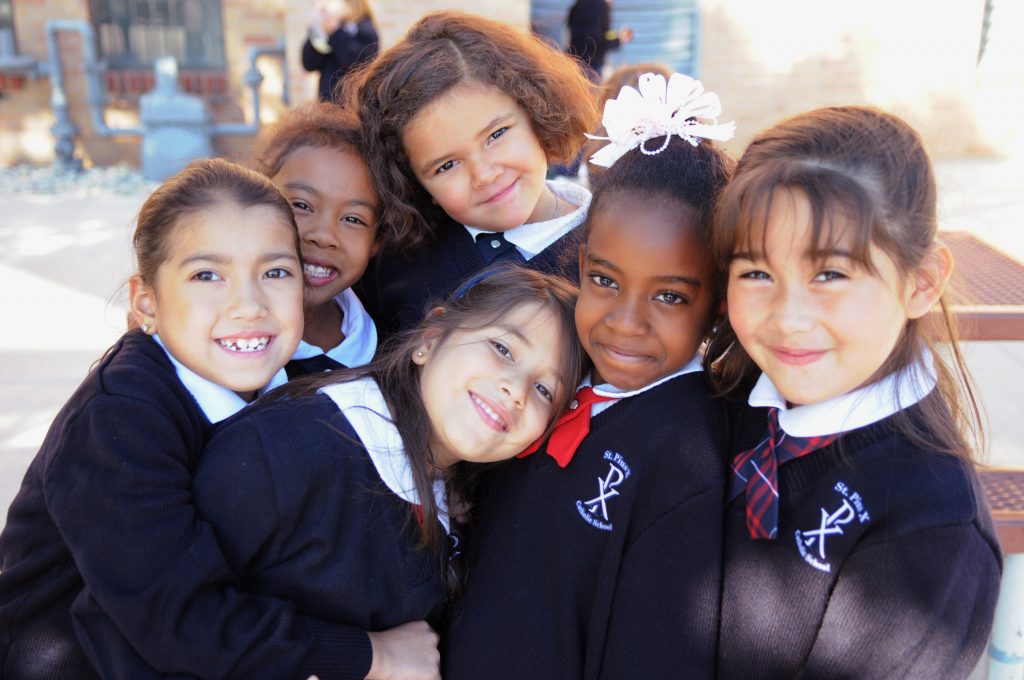The following article was contributed by Maggie Hubbard, Ed.D., Director for Special Education at the Archdiocese of Washington and Doreen Engel, Theology teacher and Benilde Director at St. Raphael Academy, Pawtucket Rhode Island.

It is that time of year again when parents come to visit schools in order to find that “best fit” Catholic school for their child. They come with all kinds of priorities…academics, facilities, technology, extra-curricular activities. For some, though, all they want is a Catholic school home for their child with a disability. And here, on the doorstep of your school, is one of those families. Maybe they are members of the parish community or maybe their parish school has turned them away. Maybe this is their oldest child or maybe it is the younger sibling of students who are already in your school. Regardless, these parents have hopes and dreams for their child, which includes finding a place where their child will be seen as a unique individual, created in the image and likeness of God, and not defined by their disability.
At Catholic schools all over the country similar scenarios are playing out. What do we say then, when these families appear at our door? Of course the words from the statement of the United States Bishops, Welcome and Justice for Persons with Disabilites ring in our ears…“We are a single flock under the care of a single shepherd. There can be no separate Church for persons with disabilities.” But there are realities involved in deciding to accept students with disabilities. Very often Catholic schools lack the special education resources that are available in the local public schools. Because, historically, Catholic schools have not accepted students with special needs, teachers have not received training on how to meet the needs of students with a multiplicity of learning needs. It can seem both instructionally overwhelming and financially prohibitive. So the logical answer is, “Unfortunately, we can’t meet your child’s educational needs.”
But, many Catholic schools all over the country have answered the request of these parents with a heartfelt “Yes!” and have found creative, effective ways of successfully educating many children, not necessarily by always following the public school model. It isn’t always easy but, as Catholic educators who have ventured down the path of accepting all learners into our own classrooms, we can say it has both strengthened us as educators and it has enriched our classroom and school communities. We have seen it work from pre-school through high school, in schools that have every possible resource and in schools that don’t. And the ways schools make it work are as unique as the schools themselves and the students they serve. The constants in all the schools, though, are an acceptance that simply by virtue of being Catholic, Catholic schools are the “right” place to educate students with special needs, and a “can do” attitude. One thing we have learned in our own personal journeys to becoming inclusive Catholic educators is that we are stronger and more effective when we share our experiences and support one another. We have been there for each other and we look forward to entering into a conversation about how you can do it too, at our convention session, Special Education Programs K-12: Models and Possibilities for Special Needs Students. As the Chinese philosopher Lao Tzu said, “The journey of a thousand miles begins with one step.” No matter where you are on your own journey, let’s take those steps together. See you in St. Louis at the NCEA 2017 Convention & Expo!
To learn more about Serving Exceptional Learners in Catholic schools, attend the NCEA 2017 Convention and Expo in St. Louis, MO April 18-20, 2017 and/or the NCEA 2017 New Directions Exceptional Learners Conference in Evanston, IL June 19-21 2017.